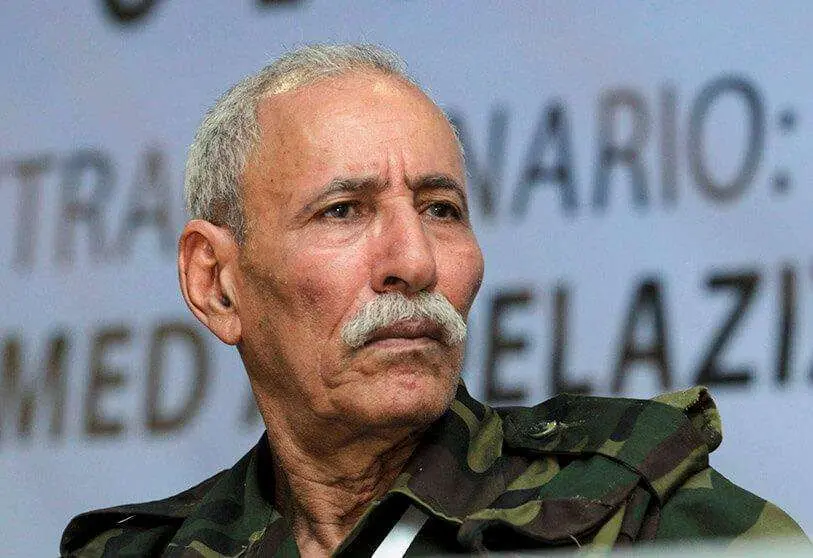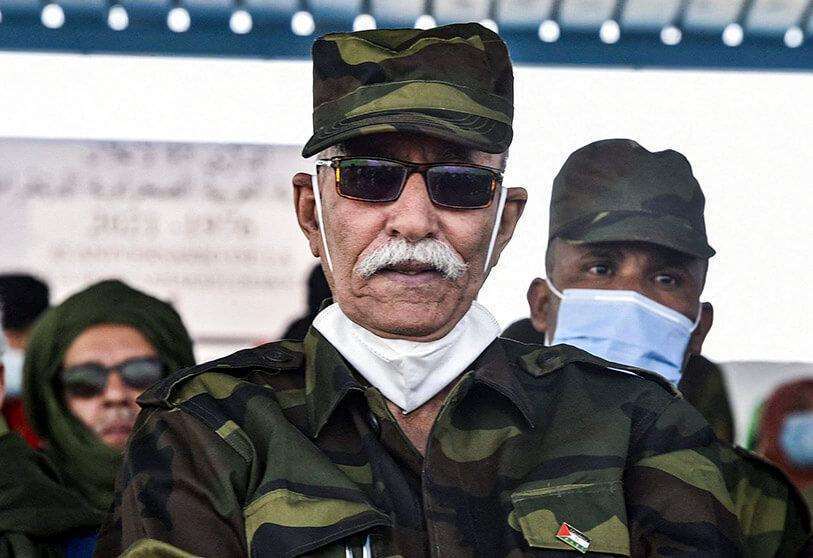The Brahim Ghali case: between humanitarian reception and being brought to justice

In September 2020, I published an article in Atalayar and CPLATAM under the title 'Polisario Front terrorist chronology'. The idea of writing about the terrorist acts committed by the Polisario against Spanish citizens was motivated by the announcement of the 'European Conference of Support and Solidarity with the Sahrawi People' (EUCOCO) to be held in Las Palmas de Gran Canaria. An appointment for solidarity, not with the Saharawi people as falsely claimed, but with the Polisario Front; a political-military organisation responsible for acts of piracy against fishing boats and terrorist acts against innocent Spanish citizens, on the same level as ETA, Grapo and the Islamists responsible for the Atocha bombings.
The fact that the Canary Islands, where most of the victims of Polisario terrorism come from and where the headquarters of the Canary Islands Association of Victims of Polisario Terrorism (ACAVITE) is located, is an insult, a provocation and contempt for the memory of the victims and their families.
I was reminded of this article when I read that the mastermind of these acts in his capacity as "Minister of Defence" of the Polisario at the time, Brahim Ghali, is in hospital in Logroño, admitted for humanitarian reasons to receive health benefits.
The first of these terrorist acts took place in January 1976 when two bombs planted by the Polisario next to the phosphate conveyor belt at Bucraa caused the death of Raimundo Peñalver when they exploded, and three other Spanish workers were seriously injured, among them Francisco Jiménez, father of Lucía Jiménez, president of the Canary Islands Association of Victims of Terrorism (ACAVITE). Francisco Jiménez was left blind and deaf and lived with these terrible consequences until his death in 2006.
Brahim Ghali, now hospitalised in Spain and being cared for by Spaniards, should also remember those attacks he ordered, such as the one on 26 September 1980 against a fishing boat, taking its crew members hostage in his barracks in Tindouf (Algeria), and the one two days later, on 28 September, when his militias attacked the fishing boat Costa de Terranova, kidnapping 15 of the crew; he did the same with the fishing boat Sarita, kidnapping nine people. On the same dates, the Portuguese fishing boat Porto Ceu was attacked, with the result that one sailor was killed and another injured.
I don't know if Brahim Ghali remembers the number of terrorist acts, between 1976 and 1987, committed by Polisario gangs under his orders? The figure is about 34 fishing boats and more than a hundred victims, dead and wounded. In addition to some 300 people who were kidnapped and taken hostage in Tindouf (Algeria).

These acts are condemned by international law and by the Penal Code of most countries. In Spain, they are classified as crimes under Article 573 of the Penal Code. Moreover, these are acts for which there is no statute of limitations.
The current Polisario leader hospitalised in the San Pedro hospital in Logroño, receiving treatment for humanitarian reasons, should remember, and so should his people, the act of maritime piracy against the 'Junquito' in September 1985, with the result of one murder, together with six sailors kidnapped and taken to Tindouf (Algeria). At the same time, the Spanish Navy patrol boat 'Tagomago', which was in the area, was attacked, resulting in the death of a non-commissioned officer and the wounding of two sailors.
The reaction of the Socialist government of Felipe González, which admitted the activity and presence of a Polisario representation on a tolerant basis, was to close its offices and expel its members. The Polisario's response was marked by petty, insulting phrases towards Spain, its people and its press. The communiqué among other offensive phrases read: "In a climate dominated by hysteria and the unbridled manipulation of the media, and its power over animal instinct, which characterise a public opinion that has had its finest hour under a fascist regime, the Spanish government threatens to take severe disciplinary measures after the release of the crew of the fishing boat [...] the Spanish government has decided, as the last episode of the scenarios set up a priori and in which it has used resources to intentionally exploit the incident for which it is first and last responsible, the breaking off of relations with the Saharawi people, as well as the closure of the information office of the Polisario Front and the expulsion of Saharawis resident in Spain".
In addition to the terrorist acts committed on the orders of Brahim Ghali, which I should recall as he is receiving medical care in Spain and which I cited in my article 'Terrorist Chronology of the Polisario Front', I should recall that he is also accused before the Spanish justice system for no less serious crimes. He is summoned by the Central Court of Instruction number 5 of Madrid, to take his statement on the accusations against him before the Spanish justice.
These are serious accusations presented by the Saharawi Association for the Defence of Human Rights (ASADEH) consisting of genocide, murder, torture, disappearances and terrorism. In these accusations, the victims are Saharawis who were in the camps controlled by the Polisario in Tindouf (Algeria). Among the plaintiffs, Saadani Maoulainine, a woman whose father was killed under torture and who, at the age of eight, was taken from her family and sent to Cuba to be indoctrinated, will be remembered.
There is another complaint filed before the Seville court by another Saharawi woman, Khadijatou Mahmoud, for the crime of rape. She claims in her accusation to have been the victim of rape by Brahim Ghali.
During all these long years, neither the Polisario nor its current leader, Brahim Ghali, ever expressed any repentance, nor asked for forgiveness from their victims.
In spite of the irreparable damage committed by this individual at the head of the Polisario and thinking that he is accused before the Spanish justice for genocide, terrorism, murder and many other things, he boldly arrives in Spain under a false identity, under the name of Mohammed Benbetouch, with an Algerian passport, hiding his real identity. Just like any ordinary terrorist of his ilk.

Spain, despite all the terrorist acts cruelly committed against innocent Spanish citizens and others against Saharawis, showed and shows a great generosity and a high level of humanism that this individual lacks and never had when he cruelly ordered the crimes of terrorism. For in spite of all the pain, the individual is being received and given the necessary medical care; but the Spanish government makes it clear that he is being received strictly for humanitarian reasons, as the foreign minister declared. It is precisely on this point that Spain's great message and greatness lie. That of providing assistance even to the alleged murderers of its citizens. Indeed, "Mr Ghali has been transferred to Spain for strictly humanitarian reasons to receive medical assistance", said Foreign Minister Arancha González Laya at a press conference.
These health benefits from Spain take on special importance and a particular value, when the very country that shelters Ghali and his militias, Algeria, arms them, trains them, and from there they left to attack the fishing boats and return with Spanish hostages. Paradoxically, this country is now forced to send Ghali to the country he did so much damage to by attacking its citizens.
Minister Arancha González Laya, in recent declarations, explained that the government's action in this matter is due to "reasons of strict compliance with the humanitarian commitment", but at the same time she assured that the government is serious about collaborating with the justice system. "We are law-abiding, including the obligation to collaborate with the Spanish justice system", stressing that "this is something that the government takes very seriously".
This means that the provision of health services for strictly humanitarian reasons should in no way be confused with the obligation that Brahim Ghali, as head of the Polisario, accused of multiple very serious accusations, once out of danger thanks to this humanitarian assistance, will have to appear before the Spanish justice system and face his victims.








